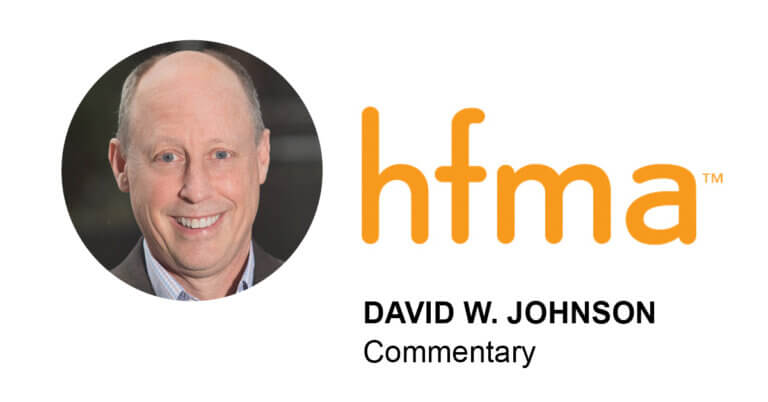April 15, 2025

Friends Now More Than Ever: The Joy, Health and Power of Connection
In a world increasingly connected by technology yet plagued by loneliness, the timeless value of friendship has never been more essential.
“Friendship improves happiness and abates misery by the doubling of our joy and the dividing of our grief,” declared Marcus Tullius Cicero, Roman philosopher, statesman, lawyer, political theorist and constitutionalist. Cicero lived before the Christian era and was widely considered one of Rome’s greatest orators and prose stylists. [1]
Just as Cicero extolled friendship’s emotional benefits, modern science confirms its impact on physical wellbeing.
In “Friendfluence: The Surprising Ways Friends Make Us Who We Are,” author Carlin Flora explores how friendships influence everything from our habits to our health. Surprisingly, many current studies show that friendship is good not only for one’s mood but also for one’s health. In addition to commonly known benefits, solid friendships help people lose weight, improve mood, get into shape, be more productive at work and not start or restart smoking. [2]
In earlier times, relationships, cooperation and team sports, such as hunting and gathering, all required developing friends. Families came together with others to form tribes, with members specializing in various activities necessary for survival. Hunting buddies would be safer and more effective going after bigger game. Survival from the elements improved as friends came together to build bigger, better, and sturdier shelters.
Early in America, groups cooperated to share books, forming what we now enjoy as the public library system. Volunteer firemen formed a mutual protection society to limit the damage from the spread of fires. These two groups of people started with friendships, which were informal at first, and then developed defined relationships. In each of these examples, the interaction among people with a common interest helped everyone. People with friends had a survival advantage, thus reinforcing this salutary behavior in peers as well as descendants.
 Sadly, and logically, loneliness has the opposite effect. Loneliness in the elderly generates an increase in mortality comparable to smoking. Melancholy is an unpleasant emotional response to isolation. Despite our current era of hyper-communication and constant stimulation, loneliness persists because much of the messaging we receive is just noise, not particularly personal, useful or unique to one individual. We tune out and sort through many of the incoming communications to focus on developing pertinent information and meaningful relationships.
Sadly, and logically, loneliness has the opposite effect. Loneliness in the elderly generates an increase in mortality comparable to smoking. Melancholy is an unpleasant emotional response to isolation. Despite our current era of hyper-communication and constant stimulation, loneliness persists because much of the messaging we receive is just noise, not particularly personal, useful or unique to one individual. We tune out and sort through many of the incoming communications to focus on developing pertinent information and meaningful relationships.
As our society has evolved with markedly increased mobility among family members, friends have become more important. A hundred years ago, except for mass migrations, most families stayed together, with many multigenerational families working side by side in family-owned businesses or farms. Sharing recipes and tools, caring for grandparents and grandchildren, as well as enjoying long-established family holiday traditions are all part of a wonderful but almost lost tradition.
More common nowadays, generations are physically separated by plane trips. Apps like Zoom and FaceTime are accessible, but these communication platforms are not great for intimate or substantial conversations. In the absence of nearby relatives, friends often step into the role once held by family. Students who have gone through vocational, college or post-graduate education together share similar experiences and may continue to share relationships previously reserved for family members. Initial work acquaintances quite commonly develop into strong friends.
The newer style among college students and young working adults is to have many friendships, some of which include romantic relationships depending upon age and gender, according to “Friendfluence.” Interestingly, according to the same author, the median age for first marriage is still rising. In 2010, it was 28.7 for men and 26.5 for women, up from 27.5 and 25.9 in 2006, respectively. One hundred million adults, almost half of all adults, are divorced or widowed, and 55% of these folks are opting out of remarrying. [3]
More people live alone now than in any time ever in history, according to sociologist Eric Klinenberg. At least 40% of adults in major metropolitan cities are single. The ability to thrive alone now, as opposed to times when prairie hardships required a functional multigenerational family, markedly diminishes the incentive to hook up. [4]
When we are not in traditional family structures, friends fill the vacancies. Single people, whether young or old, as opposed to those who live with partners and families, socialize with friends more. Proximity and availability matter. Interaction is more likely with whomever is closer — family or friends.
Surprisingly, friends are also very important to married people or those living with a romantic partner. Being with friends is both a pleasant time and a time when one is less likely to experience negative feelings. People might complain about having to attend a family function, but very few complain about attending a friend’s party.
We choose our friends; we are assigned our family. How nice when we like both similarly. Families have long histories, some of which might not be the best to remember. Friendships are typically shorter in duration and wouldn’t persist if not mutually beneficial. We also demand less from friends than we do from families or romantic partners. When friends don’t satisfy our needs, we can move on easily because we have not overinvested.
Two working parents with children are typically the most stressed of all. Caring for family first, then working, followed by caring for each other, leaves little time for friends. However, busy moms and dads would do well to continue to develop friendships. Eventually, the kids grow up and appropriately desire independence.
Friends’ influence is underappreciated and, in our current society, may be more important than family interaction. If one is separated from family, then friends — personal and professional — fill the gap. We are, after all, social beings.
 Children’s friendships are interesting in their own right. With no built-in playmate, only children may be more likely to seek out a special friend. Alternatively, preschoolers who have trouble making friends are also not as good at being supportive to younger siblings. Later in life, when making professional friends is important for success, these children, now grown, may suffer. The ability to make friends is important for success in life, both personal and professional.
Children’s friendships are interesting in their own right. With no built-in playmate, only children may be more likely to seek out a special friend. Alternatively, preschoolers who have trouble making friends are also not as good at being supportive to younger siblings. Later in life, when making professional friends is important for success, these children, now grown, may suffer. The ability to make friends is important for success in life, both personal and professional.
Illicit drug use, smoking, obesity and early sexual activity are all highly influenced by friends’ behavior. Enrolling a child in the right school is more important than academic achievement. Behavior, both good and bad, depends on the environment populated by friends as well as parents.
No matter our age or life stage, friendships are essential. They are more than a luxury. Friends are a necessity for joy, resilience and health. Invest in them. Nurture them. They are your lifeline to a better life.
Families matter for sure, but don’t underestimate friendships. Friendship matters at all ages.
Sources
- Brainy Quote, by Marcus Tullius Cicero, 106 BC.
- “Friendfluence: The Surprising Ways Friends Make Us Who We Are,” by Carlin Flora, 2013.
- “Friendfluence: The Surprising Ways Friends Make Us Who We Are,” by Carlin Flora, 2013.
- “Living Alone Is the New Norm,” by Eric Klinenburg, March 12, 2012.




